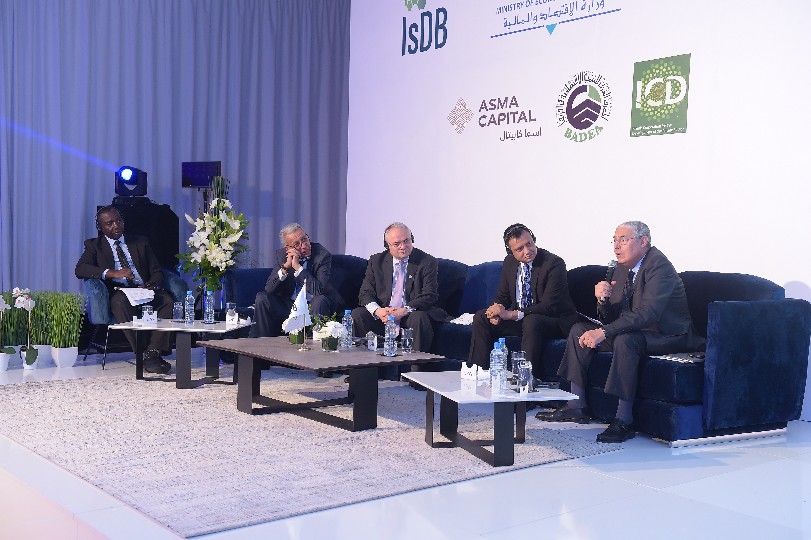1109 results found
Featured results



More results
The purpose of these principles is to help government work with private sector partners to finance and bring to fruition projects in areas of vital economic importance, such as transport, water and power supply and telecommunications.

PPP online courses provide an understanding of the key principles of PPPs and the role of PPPs in the delivery of infrastructure services, particularly in emerging markets.

The EIB Group is committed to continue maintaining a stringent policy against tax fraud, tax evasion, tax avoidance as well as money laundering and terrorism financing.

Inadequate financing for project preparation can result in projects being taken to procurement without the requisite readiness, which can lead to cost and time overruns during implementation, or a project that is not well-suited to the needs of the public.
On the 13 March 2019, the Global Infrastructure Hub and Meridiam, signed an MOU on behalf of the Africa Infrastructure Fellowship Program (AIFP) with the Government of Ethiopia. The MOU was the first of its kind for the initiative, which will open its application process later in 2019.
sustainABLE is a free online platform modelled on research jointly published by UNOPS and the University of Oxford-led Infrastructure Transitions Research Consortium. The extensive research explored the critical role of infrastructure in achieving the SDGs. The tool aims to advance the SDGs by promoting practical measures that encourage project sustainability across a broad range of sectors.

This paper provides reflections and considerations as to how MDBs including the IDB can use the Project Preparation Facilities (PPFs) to help countries fill the infrastructure gap by improving the quality of projects, reducing and mitigating risks, and leveraging private financing.

The Navigator – a web-based platform – helps project teams, public authorities and financiers to find the right sustainable infrastructure tool from amongst 50+ rating systems, high-level principles and guidelines.

This PPIAF-funded report aims to discuss and disseminate information on how Islamic finance has been applied in infrastructure projects through PPP schemes, what the structural challenges and solutions are, and what can be done to deepen and maximise the use of Islamic finance for this purpose.
Globally, governments are accountable for the development of infrastructure and the delivery of basic services in an affordable and inclusive manner. The ability of governments to nurture a conducive enabling environment for infrastructure investment has often been found to be a key differentiator between countries that successfully scale up infrastructure and those that face challenges in doing so.
The Global Infrastructure Hub (GI Hub) is pleased to announce the appointment of Marie Lam-Frendo as its new CEO, effective 28 January 2019.
The Infrastructure Knowledge Exchange (IKE) is Global infrastructure Hubs' (GI Hub) database of categorised infrastructure resources. The tool has been created to help Infrastructure professionals globally, to easily find resources that pertain to infrastructure tools, data, publications, organisations, reports and, news.
The PPP Contract Management Tool provides public sector officials with practical guidance and case studies, so that those responsible for managing contracts after financial close are better able to ensure project objectives and value for money.

The term of a public-private partnership (PPP) contract can exceed 20 or even 30 years. At the end of the term, the relevant private partner is often obligated to hand back the public asset in question (whether it be a road, an airport or a hospital) in a condition that meets the government procuring authority’s expectations.

For this year’s edition, we reached out to more than 10,000 people in 10 major global cities to ask about their everyday experiences with infrastructure services. How satisfied and safe do they feel with their roads and bridges, rail services and utilities? How engaged are they in the decision-making processes for new projects that can improve lifestyles and drive new economic growth?


This publication discusses how the Central Asia Regional Economic Cooperation Program (CAREC) can enhance trade by addressing key challenges, including poor market access, limited economic diversification, and weak institutions for trade.

Tackling the global infrastructure gap remains a priority for governments to drive inclusive growth and deliver quality infrastructure projects for their citizens.





Early termination of a PPP contract can be an expensive process for all parties involved.






 Project Preparation Tool
Project Preparation Tool








